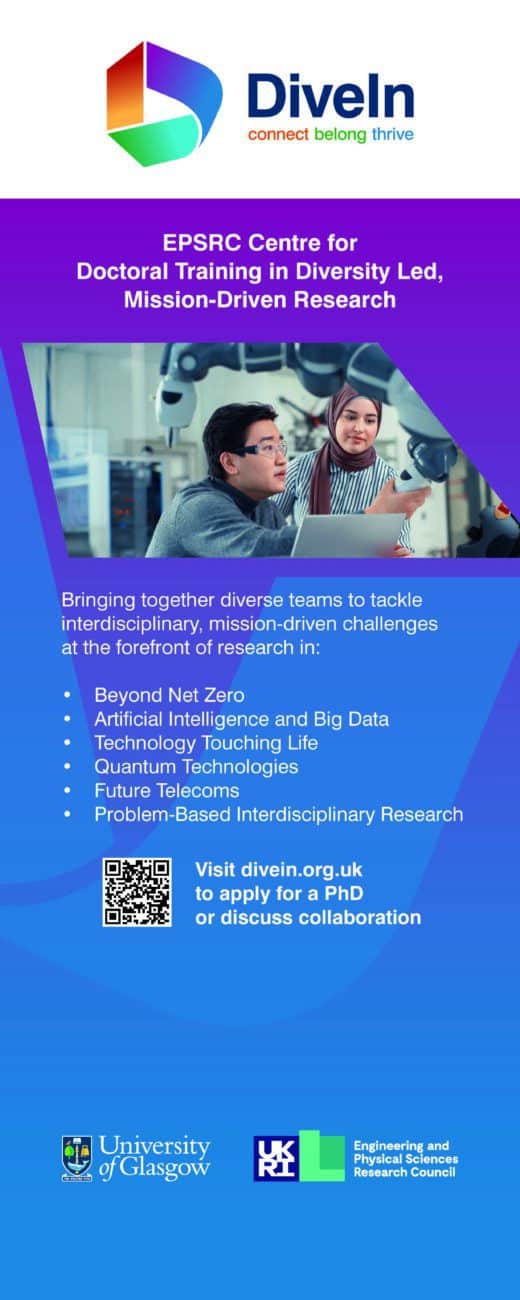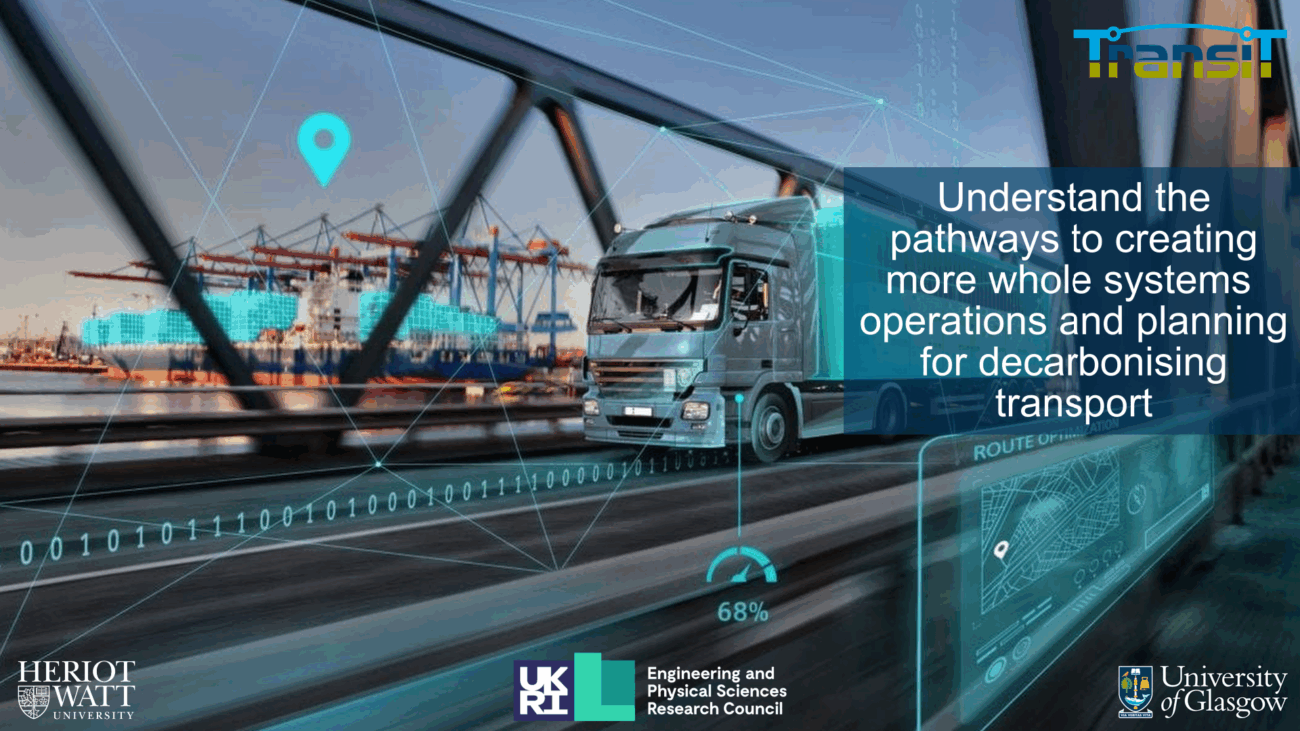DiveIn and TransiT Launch Strategic Partnership for Interdisciplinary Innovation
 At DiveIn, our partnerships are key to driving inclusive, interdisciplinary research and innovation. Aligned with national Mission Priority Areas set by Government, these collaborations connect students with real-world challenges and diverse expertise, supporting impactful research and opening pathways to inclusive, future-focused careers in science and technology.
At DiveIn, our partnerships are key to driving inclusive, interdisciplinary research and innovation. Aligned with national Mission Priority Areas set by Government, these collaborations connect students with real-world challenges and diverse expertise, supporting impactful research and opening pathways to inclusive, future-focused careers in science and technology.
Beyond Net Zero and AI & Big Data have been identified by our incoming cohort as key focus areas for their interdisciplinary PhD projects over the next four years. In response, DiveIn is proud to welcome TransiT, the UK’s national research hub for accelerating transport decarbonisation through digital twinning technologies, as a valued partner to our growing catalogue of collaborators. See divein.org.uk
“DiveIn CDT is creating a new, world changing, model of Doctoral Training and we are delighted that TransiT is partnering with us on this journey of transformation.”
Professor Qammer Abbasi, Co-Director of DiveIn CDT.
This new collaboration offers DiveIn students working in these Mission Priority Areas unique opportunities to engage in cutting-edge research at the forefront of the UK’s decarbonisation efforts, further strengthening our commitment to real-world impact and innovation.
“TransiT is the UKs National Digital Twinning hub for Decarbonisation, with an ambitious mission to build UK capability and capacity in digital twinning of critical national infrastructure, and to deliver world leading capabilities in transport decarbonisation. Delivering and capitalising on this investment, requires a highly skilled, creative and interdisciplinary talent base. In partnership with the DiveIn CDT we can co-develop the future leaders, as to deliver the impact from our transformative research.”
Professor David Flynn, TransiT Joint Programme Director.
Based at the Mazumdar-Shaw Advanced Research Centre, this partnership thrives within the ARC’s unique ecosystem, home to cutting-edge facilities and shared spaces that bring together researchers from across the University of Glasgow.
“It’s exciting to see initiatives like DiveIn and TransiT harnessing the full potential of the ARC to drive effective collaborations and transformative research. This partnership reflects the ARC’s vision as an incubator for world-leading interdisciplinary research, and we look forward to seeing the impact it will have on both the research landscape and the opportunities it creates for our PhD students.”
Dr John Harris, ARC Head of Operations.
“The Graduate School and Doctoral Training Hub are excited to support this dynamic partnership, which will provide outstanding interdisciplinary research and development opportunities for our doctoral students.”
Mrs Michelle Carmichael, Interim Graduate School and Doctoral Training Hub Manager.
About TransiT
Transport is the largest contributor to UK domestic greenhouse gas emissions, but it is also the engine of economic growth. To meet net zero emissions by 2050 and protect the economy, it is crucial that the UK’s transport infrastructure evolves to meet the challenges of climate change, whether that is flooding or extreme heat.
This £46 million initiative, led by Prof. Philip Greening (Heriot-Watt University) and Prof. David Flynn (University of Glasgow), brings together 8 leading universities and 67 industry partners in the largest transport consortium of its kind in the UK.
At the heart of TransiT’s mission is the development of a Federated Transport System of Systems (FTSoS), comprising interconnected digital twins spanning road, rail, air, and maritime transport modes. This comprehensive approach aims to address the complex challenges of transport decarbonisation holistically, considering passenger and freight movements across all sectors. 
TransiT aims to identify the most cost-effective, low-risk, and energy-efficient strategies for decarbonising transport by leveraging a digital twinning approach. Digital twins are real-time virtual replicas of physical infrastructure – such as motorways, railways, or flight systems- created using sensor data. These twins rapidly analyse real-world conditions to simulate and optimise various scenarios, then relay improved solutions back to the physical systems almost instantly, enabling smarter, more sustainable transport decisions.
Learn more: TransiT Hub
